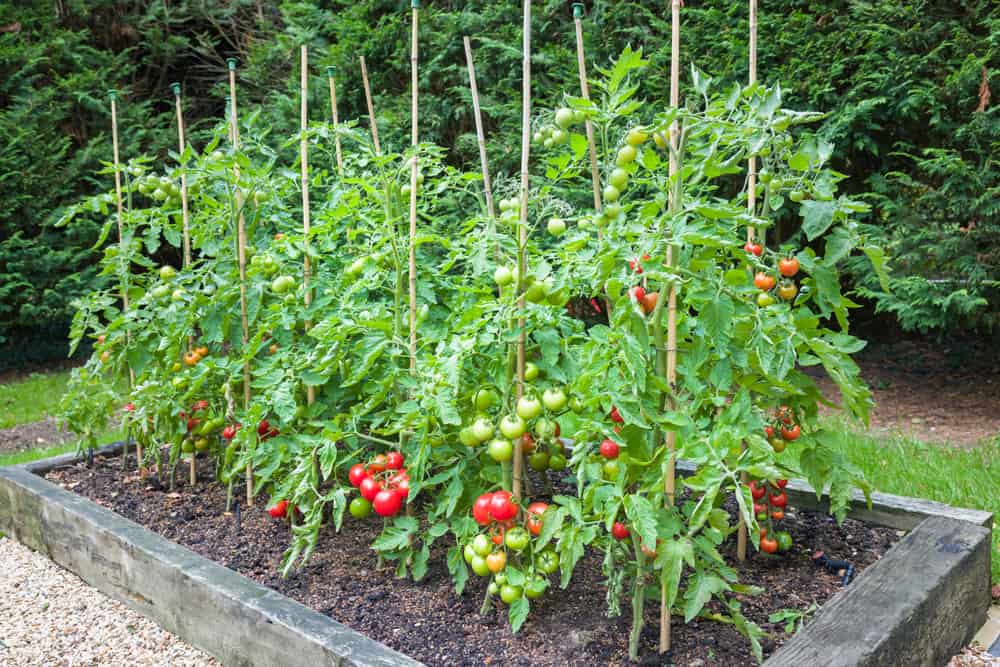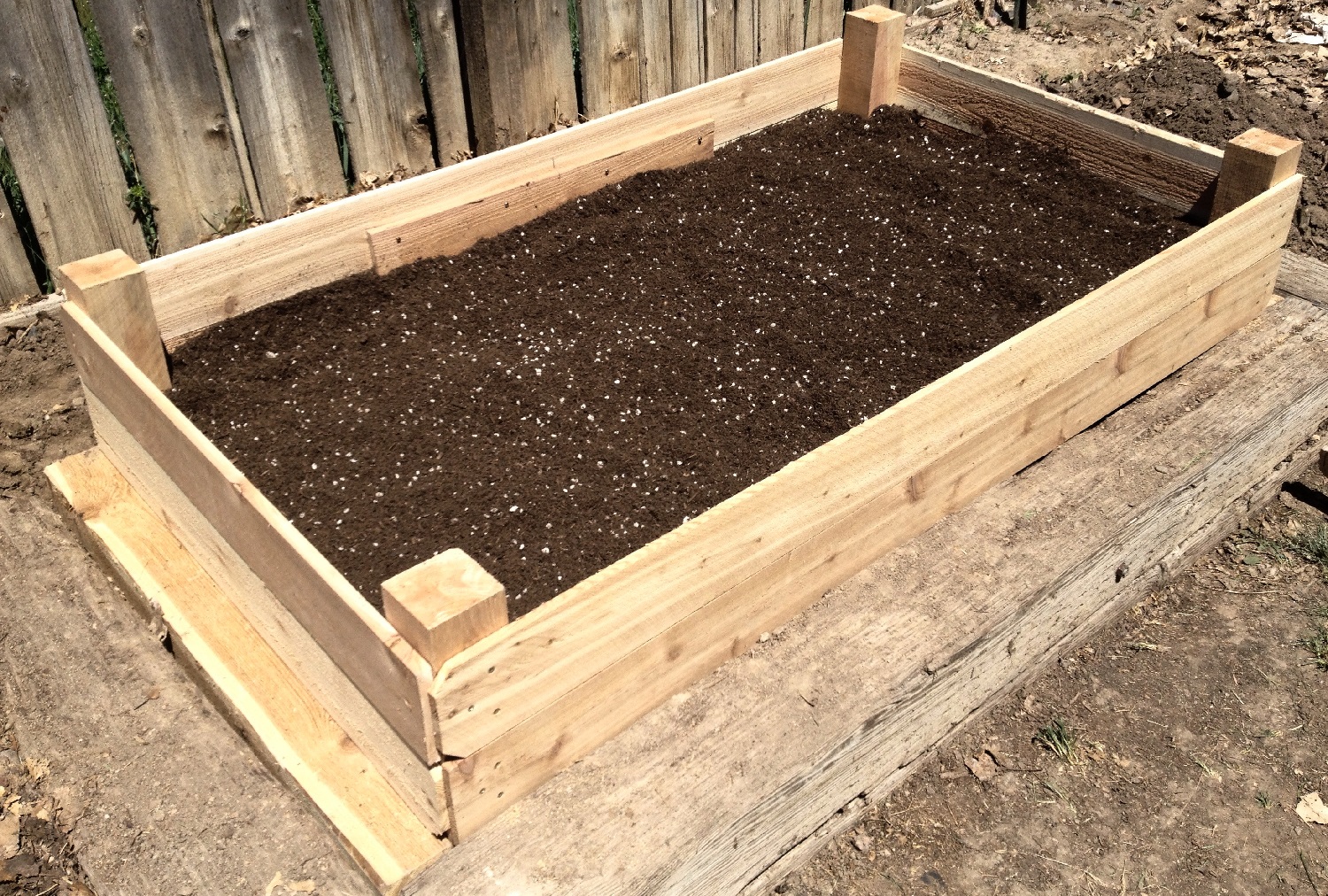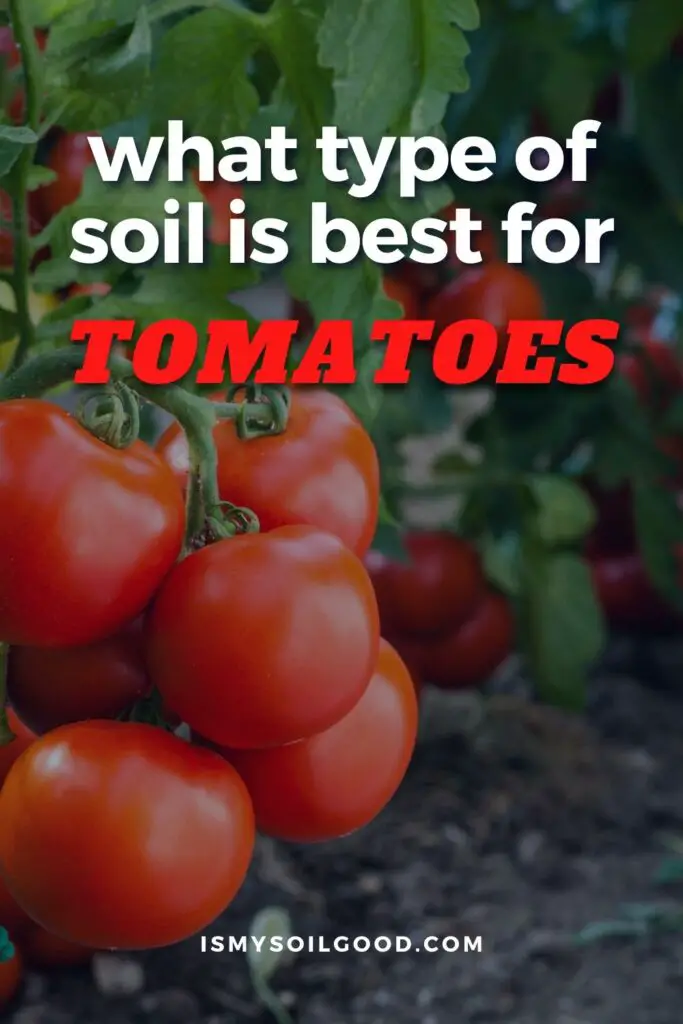Why Soil Quality Matters for Tomato Success
Soil quality plays a critical role in determining the health, productivity, and overall success of tomato plants in raised beds. In fact, research has shown that soil quality can affect tomato yields by as much as 30%. With the right soil for tomatoes in raised beds, gardeners can expect to see improved plant growth, increased fruit production, and enhanced disease resistance.
A high-quality soil for tomatoes in raised beds provides the necessary nutrients, water, and air for optimal root development. This, in turn, enables tomato plants to absorb the necessary nutrients and water, leading to stronger, more resilient plants. Furthermore, a well-structured soil allows for good drainage, aeration, and water retention, reducing the risk of waterlogged soil and root rot.
In addition to its impact on plant growth, soil quality also affects the flavor, texture, and nutritional value of tomatoes. Tomatoes grown in rich, fertile soil tend to have a more complex flavor profile, a firmer texture, and higher levels of essential vitamins and minerals. By investing in high-quality soil for tomatoes in raised beds, gardeners can enjoy a bountiful harvest of delicious, nutritious tomatoes all season long.
Understanding the Unique Needs of Tomatoes in Raised Beds
Tomatoes grown in raised beds have specific requirements that differ from those grown in traditional gardens. One of the primary differences is the need for improved drainage and aeration. Raised beds are typically shallower than traditional gardens, which means that the soil can become waterlogged more easily. This can lead to root rot and other problems that can hinder tomato growth. To combat this, gardeners should ensure that their raised bed soil has good drainage and aeration, allowing excess water to escape and oxygen to reach the roots.
In addition to drainage and aeration, tomatoes in raised beds require a consistent supply of nutrients. Because raised beds are typically filled with a mix of soil and other amendments, the nutrient content can be more variable than in traditional gardens. Gardeners should choose a high-quality soil for tomatoes in raised beds that is rich in nutrients and has a balanced pH. This will help to promote healthy plant growth and fruit production.
Another key difference between tomatoes in raised beds and those in traditional gardens is the need for more frequent watering. Raised beds dry out more quickly than traditional gardens, which means that gardeners need to water their tomatoes more frequently. However, it’s essential to avoid overwatering, which can lead to a range of problems including root rot and fungal diseases.
How to Choose the Best Soil for Your Raised Bed Tomatoes
When it comes to selecting the ideal soil for tomatoes in raised beds, there are several factors to consider. The right soil can make all the difference in promoting healthy plant growth, fruit production, and disease resistance. Here are some key considerations to keep in mind when choosing a soil for tomatoes in raised beds:
pH is a critical factor in soil selection, as tomatoes prefer a slightly acidic to neutral soil pH (around 6.0-7.0). A soil with a pH outside of this range can lead to nutrient deficiencies and reduced plant growth. Look for a soil that is specifically formulated to meet the pH needs of tomatoes.
Nutrient content is another essential consideration. Tomatoes are heavy feeders and require a consistent supply of nutrients to produce a bountiful harvest. Opt for a soil that is rich in organic matter and contains a balanced mix of nitrogen, phosphorus, and potassium (NPK).
Organic matter is also a crucial component of a high-quality soil for tomatoes in raised beds. Organic matter helps to improve soil structure, increase water retention, and support beneficial microbial activity. Look for soils that contain a high percentage of organic matter, such as compost or peat moss.
Popular soil options for raised bed tomatoes include Miracle-Gro and Espoma. These soils are specifically formulated to meet the unique needs of tomatoes and contain a balanced mix of nutrients and organic matter. However, it’s essential to read the label and ensure that the soil meets the specific needs of your tomato plants.
Ultimately, the best soil for tomatoes in raised beds is one that is specifically formulated to meet the unique needs of tomatoes. By considering factors such as pH, nutrient content, and organic matter, gardeners can choose a soil that will support healthy plant growth and fruit production.
The Role of Organic Matter in Tomato Soil Health
Organic matter plays a vital role in maintaining healthy soil for tomatoes in raised beds. It is essential for improving soil structure, increasing water retention, and supporting beneficial microbial activity. Organic matter can come in various forms, including compost, manure, peat moss, and worm castings. When incorporated into the soil, these amendments can help to:
Improve soil structure: Organic matter helps to break up clay soils and improve drainage, while also adding bulk to sandy soils to retain moisture.
Increase water retention: Organic matter acts like a sponge, holding onto water and releasing it as needed, reducing the need for frequent watering.
Support beneficial microbes: Organic matter provides a food source for beneficial microorganisms, which help to break down nutrients and make them available to tomato plants.
To incorporate organic matter into your raised bed soil, start by adding a 2- to 4-inch layer of compost or manure to the soil surface. Mix it in well to a depth of 8-10 inches. You can also add organic matter to the soil as a side dressing, mixing it into the soil around the base of the plants.
Some popular organic amendments for tomatoes in raised beds include:
Compost: Rich in nutrients and beneficial microbes, compost is an excellent addition to raised bed soil.
Manure: High in nutrients and organic matter, manure can help to improve soil structure and fertility.
Peat moss: A acidic, organic matter-rich amendment that can help to improve soil structure and retain moisture.
Worm castings: A nutrient-rich amendment produced by worms, worm castings can help to support beneficial microbial activity and improve soil fertility.
By incorporating organic matter into your raised bed soil, you can create a healthy, thriving environment for your tomatoes to grow.
Creating a Balanced Soil Mix for Raised Bed Tomatoes
Creating a balanced soil mix for raised bed tomatoes is crucial for optimal plant growth and fruit production. A well-balanced soil mix should provide the necessary nutrients, structure, and moisture-holding capacity to support healthy tomato plants. Here’s a step-by-step guide to creating a DIY soil blend for raised bed tomatoes:
Recipe for a Balanced Soil Mix:
Combine the following ingredients to create a balanced soil mix for raised bed tomatoes:
- 40% Compost or well-rotted manure
- 30% Peat moss or coconut coir
- 20% Vermiculite or perlite
- 10% Worm castings or other organic amendments
Customizing the Mix:
The above recipe provides a general guideline for creating a balanced soil mix for raised bed tomatoes. However, you may need to customize the mix based on specific tomato varieties, growing conditions, and regional climate. For example:
If you’re growing cherry tomatoes or patio tomatoes, you may want to add more organic matter to the mix to improve soil structure and water retention.
If you’re growing large, indeterminate tomatoes, you may want to add more vermiculite or perlite to improve drainage and aeration.
If you’re growing tomatoes in a hot and dry climate, you may want to add more peat moss or coconut coir to improve moisture retention.
Tips for Creating a Balanced Soil Mix:
Use a variety of organic amendments to create a diverse and balanced soil ecosystem.
Avoid over-amending the soil with too many nutrients, as this can lead to nutrient imbalances and poor plant growth.
Test the pH of your soil mix and adjust it as necessary to ensure optimal nutrient availability for tomato plants.
By following these guidelines and customizing the mix to suit your specific needs, you can create a balanced soil mix that will support healthy and productive tomato plants in your raised bed garden.
Common Soil Mistakes to Avoid in Raised Bed Tomato Gardens
When it comes to growing tomatoes in raised beds, soil quality is crucial for optimal plant growth and fruit production. However, many gardeners make common soil mistakes that can hinder tomato growth and lead to poor yields. Here are some common soil mistakes to avoid in raised bed tomato gardens:
Over-Fertilization:
Over-fertilization can lead to an overabundance of nutrients in the soil, which can cause more harm than good. Tomato plants may experience nutrient imbalances, leading to poor growth and fruit production. To avoid over-fertilization, start with a balanced fertilizer and follow the instructions carefully.
Poor Drainage:
Poor drainage can lead to waterlogged soil, which can cause root rot and other problems. Make sure your raised bed has proper drainage holes and that the soil mix is well-draining. Add organic matter like compost or perlite to improve soil structure and drainage.
Inadequate Aeration:
Inadequate aeration can lead to poor root growth and reduced plant performance. Ensure that your raised bed has adequate aeration by adding organic matter like compost or vermiculite, which can help to improve soil structure and aeration.
Insufficient Organic Matter:
Insufficient organic matter can lead to poor soil structure, reduced water retention, and inadequate nutrient availability. Add organic matter like compost, manure, or worm castings to your raised bed soil to improve soil health and fertility.
Ignoring Soil pH:
Soil pH can affect nutrient availability and plant growth. Tomatoes prefer a slightly acidic to neutral soil pH (around 6.0-7.0). Test your soil pH regularly and adjust it as necessary to ensure optimal nutrient availability.
By avoiding these common soil mistakes, you can create a healthy and thriving soil environment for your tomatoes in raised beds. Remember to monitor your soil regularly and make adjustments as necessary to ensure optimal plant growth and fruit production.
Monitoring and Maintaining Soil Health in Raised Bed Tomatoes
Once you’ve created a balanced soil mix for your raised bed tomatoes, it’s essential to monitor and maintain soil health to ensure optimal plant growth and fruit production. Ongoing soil monitoring and maintenance can help identify potential issues before they become major problems, saving you time and resources in the long run.
Soil Testing:
Regular soil testing is crucial for monitoring soil health and identifying potential nutrient deficiencies or pH imbalances. You can purchase a soil testing kit or send a sample to a laboratory for analysis. Test your soil at least twice a year, once in the spring and once in the summer, to ensure optimal soil conditions for your tomatoes.
pH Adjustment:
Tomatoes prefer a slightly acidic to neutral soil pH (around 6.0-7.0). If your soil test reveals a pH imbalance, adjust it accordingly. Add lime to raise the pH or sulfur or peat moss to lower it. Make adjustments gradually, as sudden changes can shock your tomato plants.
Nutrient Replenishment:
Tomatoes are heavy feeders and require regular nutrient replenishment to maintain optimal growth and fruit production. Add organic matter like compost, manure, or worm castings to your raised bed soil to replenish nutrients and improve soil structure. You can also use balanced fertilizers, following the instructions carefully to avoid over-fertilization.
Monitoring Soil Moisture:
Soil moisture is critical for tomato growth, and inconsistent moisture levels can lead to disease and pest issues. Monitor soil moisture regularly, and adjust your irrigation schedule accordingly. Mulch around your tomato plants to retain moisture and suppress weeds.
By monitoring and maintaining soil health in your raised bed tomato garden, you can ensure optimal plant growth, fruit production, and disease resistance. Remember to stay vigilant and make adjustments as necessary to create a thriving soil environment for your tomatoes.
Conclusion: Setting Your Tomatoes Up for Success with Optimal Soil
In conclusion, optimizing soil for tomatoes in raised beds is crucial for achieving a bountiful harvest. By understanding the unique needs of tomatoes in raised beds, selecting the best soil, and incorporating organic matter, you can create a thriving soil environment that supports healthy plant growth and fruit production.
Remember to avoid common soil mistakes, such as over-fertilization and poor drainage, and instead focus on creating a balanced soil mix that meets the specific needs of your tomato plants. Regular soil monitoring and maintenance are also essential for ensuring optimal soil health and fertility.
By implementing the strategies outlined in this article, you can set your tomatoes up for success and enjoy a productive and rewarding growing season. Whether you’re a seasoned gardener or just starting out, optimizing soil for tomatoes in raised beds is a crucial step towards achieving a thriving and productive tomato garden.
So, don’t wait – start optimizing your soil for tomatoes in raised beds today and reap the rewards of a bountiful harvest!







